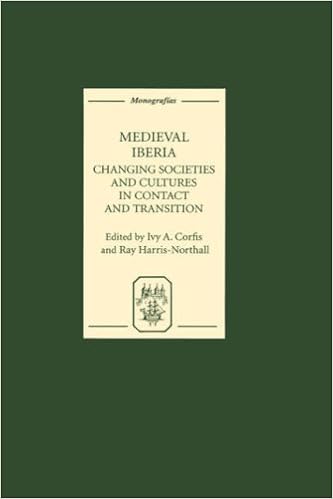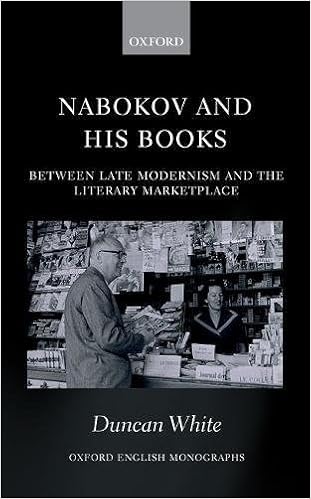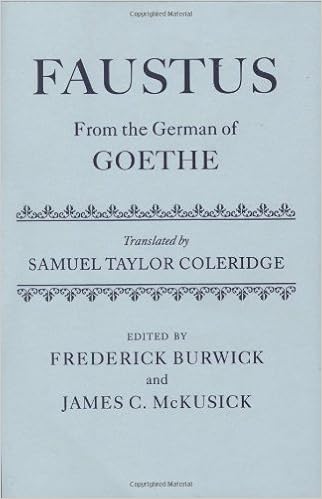
Medieval Iberia was once wealthy in sociolinguistic and cultural range. This quantity explores the tradition, historical past, literature and language of the Peninsula in an try and comprehend its cultural-political complexity and its legacy. vital subject matters comprise the illustration of minority teams locally; the problem of social touch that may convey mutual absorption of impact or clash; the results of linguistic interplay and improvement; and the dissemination of cultural and medical wisdom inside and past the borders of the Peninsula. smooth interpretations of Medieval Iberia are neither static nor definitive during this kaleidoscopic box of research.
Read or Download Medieval Iberia: Changing Societies and Cultures in Contact and Transition (MonografÃas A) (Monografías A) PDF
Best World Literature books
The Conquest of New Spain (Penguin Classics)
Shiny, robust and soaking up, it is a first-person account of 1 of the main startling army episodes in heritage: the overthrow of Montezuma's doomed Aztec Empire via the ruthless Hernan Cortes and his band of adventurers. Bernal Díaz del Castillo, himself a soldier less than Cortes, offers a fascinatingly designated description of the Spanish touchdown in Mexico in 1520 and their amazement on the urban, the exploitation of the natives for gold and different treasures, the expulsion and flight of the Spaniards, their regrouping and eventual catch of the Aztec capital.
On the outbreak of the second one global battle Vladimir Nabokov stood on the point of wasting every little thing yet again. The recognition he had equipped because the pre-eminent Russian novelist in exile used to be imperilled. In Nabokov and his Books, Duncan White indicates how Nabokov went to the United States and never purely reinvented himself as an American author but additionally used the luck of Lolita to rescue these Russian books that have been threatened by way of obscurity.
Faustus From the German of Goethe Translated by Samuel Taylor Coleridge
The foremost paintings of German literature, Johann Wolfgang von Goethe's Faust (1808), used to be translated into English through one in every of Britain's such a lot able mediators of German literature and philosophy, Samuel Taylor Coleridge. Goethe himself two times observed Coleridge's translation of his Faust. Goethe's personality wrestles with the very metaphysical and theological difficulties that preoccupied Coleridge: the which means of the emblems, the plain competition of theism and pantheism.
Gotthold Ephraim Lessing: His Life, Works, and Thought
Gotthold Ephraim Lessing (1729-1781) is the main eminent literary determine of the German Enlightenment and a author of ecu value. His variety of curiosity as dramatist, poet, critic, thinker, theologian, philologist and lots more and plenty else along with used to be akin to that of Voltaire, Diderot, and Rousseau, with all of whose principles he engaged.
Extra info for Medieval Iberia: Changing Societies and Cultures in Contact and Transition (MonografÃas A) (Monografías A)
In Arnaldi de Villanova. Aphorismi de gradibus. Ed. M. R. McVaugh. Vol. 2 of Opera Medica Omnia. Seminarium Historiae Medicae Granatensis. Barcelona: Universidad de Barcelona/University of North Carolina, 1975. 1–23. ——. medication ahead of the Plague: Practitioners and Their sufferers within the Crown of Aragon, 1285–1345. Cambridge historical past of drugs. Cambridge: Cambridge UP, 1993. PHARMACEUTICAL FICTIONS 109 Mexía, Pedro. Silva de varia lección. Ed. Antonio Castro. 2 vols. Letras Hispánicas 264, 288. Madrid: Cátedra, 1989–90. Rojas, Fernando de. Celestina: Tragicomedia de Calisto y Melibea. Ed. Miguel Marciales. ready through Brian Dutton and Joseph T. Snow. 2 vols. Illinois Medieval Monographs 1. Urbana: U of Illinois Press, 1985. Rouhi, Leyla. ‘ “. . . Y otros treynta officios”: The Definition of a Medieval Woman’s paintings in Celestina’. Celestinesca 22. 2 (1998): 21–31. Ruggerio, Michael J. The Evolution of the Go-Between in Spanish Literature in the course of the 16th Century. college of California courses in glossy Philology seventy eight. Berkeley: U of California Press, 1966. Saladino de Ascoli. Compendio de los boticarios compuesto por el surgeon Saladino fisico relevant del principe de Taranto trasladado del latin en lengua vulgar castellana. Trans. Alonso Rodríguez de Tudela. Valladolid: Arnao Guillén de Brocar, 1515. Ed. Thomas M. Capuano. In Textos y concordancias electrónicos del corpus médico español. Solomon, Michael. ‘Calisto’s disease: Bitextual Diagnostics and Parody in Celestina’. Revista de Estudios Hispánicos 23 (1989): 41–64. ——. The Literature of Misogyny in Medieval Spain: The ‘Arcipreste de Talavera’ and the ‘Spill’. Cambridge reports in Latin American and Iberian Literature 10. manhattan: Cambridge UP, 1997. Soriano, Jerónimo. Libro de experimentos medicos, faciles y verdaderos. Recopilados de gravissimos autores [. . . ]. Zaragoza: Juan Pérez, 1598. Ed. Patricia de Forteza. In Textos y concordancias electrónicos del corpus médico español. [Speculum al foderi] The replicate of Coitus: A Translation and variation of the Fifteenth-Century ‘Speculum al foderi’. Ed. and trans. Michael Solomon. Medieval Spanish clinical Texts sequence 29. Madison: Hispanic Seminary of Medieval stories, 1990. Tesoro de l. a. medicina (Tesoro de los remedios). Biblioteca Colombina, Seville: 5-1-17. Ed. María Purificación Zabía Lasala. In Textos y concordancias electrónicos del corpus médico español. Textos y concordancias electrónicos del corpus médico español. Eds María Teresa Herrera and María Estela González de Fauve. CD-Rom sequence four. Madison: Hispanic Seminary of Medieval reports, 1997. Van der Geest, Sjaak, and Susan Reynolds Whyte. ‘The appeal of medications: Metaphors and Metonyms’. clinical Anthropology Quarterly three (1989): 345–67. Van der Geest, Sjaak, Susan Reynolds Whyte and Anita Hardon. ‘The Anthropology of prescribed drugs: A Biographical Approach’. Annual overview of Anthropology 25 (1996): 153–78. Zamudio de Alfaro, Andrés. Orden para los angeles cvra y preservacion de las secas y carbuncos (Madrid, 1599). Biblioteca Nacional, Madrid: R-1879. Ed. María Estela González de Fauve.



